Is it a bad idea to drink coffee after getting a hair transplant?
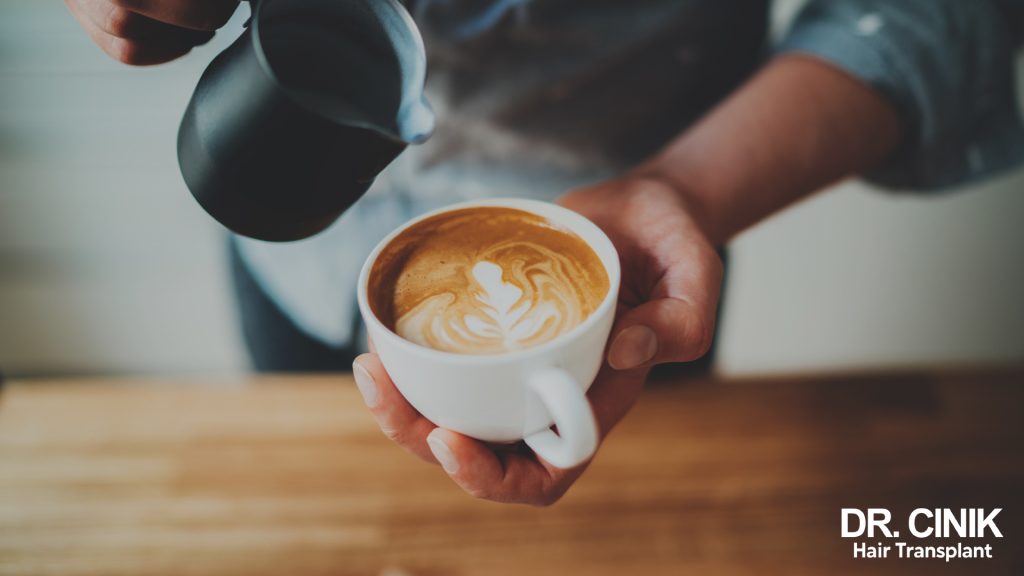
Sommaire
Drinking coffee is a daily ritual for many, but after a hair transplant, it’s legitimate to wonder about the impact of caffeine on the healing process. Caffeine, a well-known stimulant, can have effects on blood circulation and sleep, both of which are essential in the post-operative recovery period. Find out why it’s often advisable to moderate coffee consumption after a hair transplant and the potential effects this can have on the recovery and health of transplanted hair.
Why you shouldn’t drink coffee after a hair transplant
It’s generally advisable to limit coffee and other caffeine-containing beverages after a hair transplant for several reasons related to caffeine’s effects on the body. Caffeine is a stimulant that can raise blood pressure and accelerate heart rate. These effects can be detrimental in the delicate context of post-operative healing.
During the healing phase, grafts implanted in the scalp are particularly vulnerable. They need time to anchor firmly in their new location. High blood pressure can lead to increased blood flow and pressure on blood vessel walls. This, in turn, can cause veins in the scalp to dilate and increase the intensity of blood pulsations. These changes in vascular dynamics can exert excessive force on graft sites, which are not yet fully healed, and risk dislodging the grafts before they are secure.
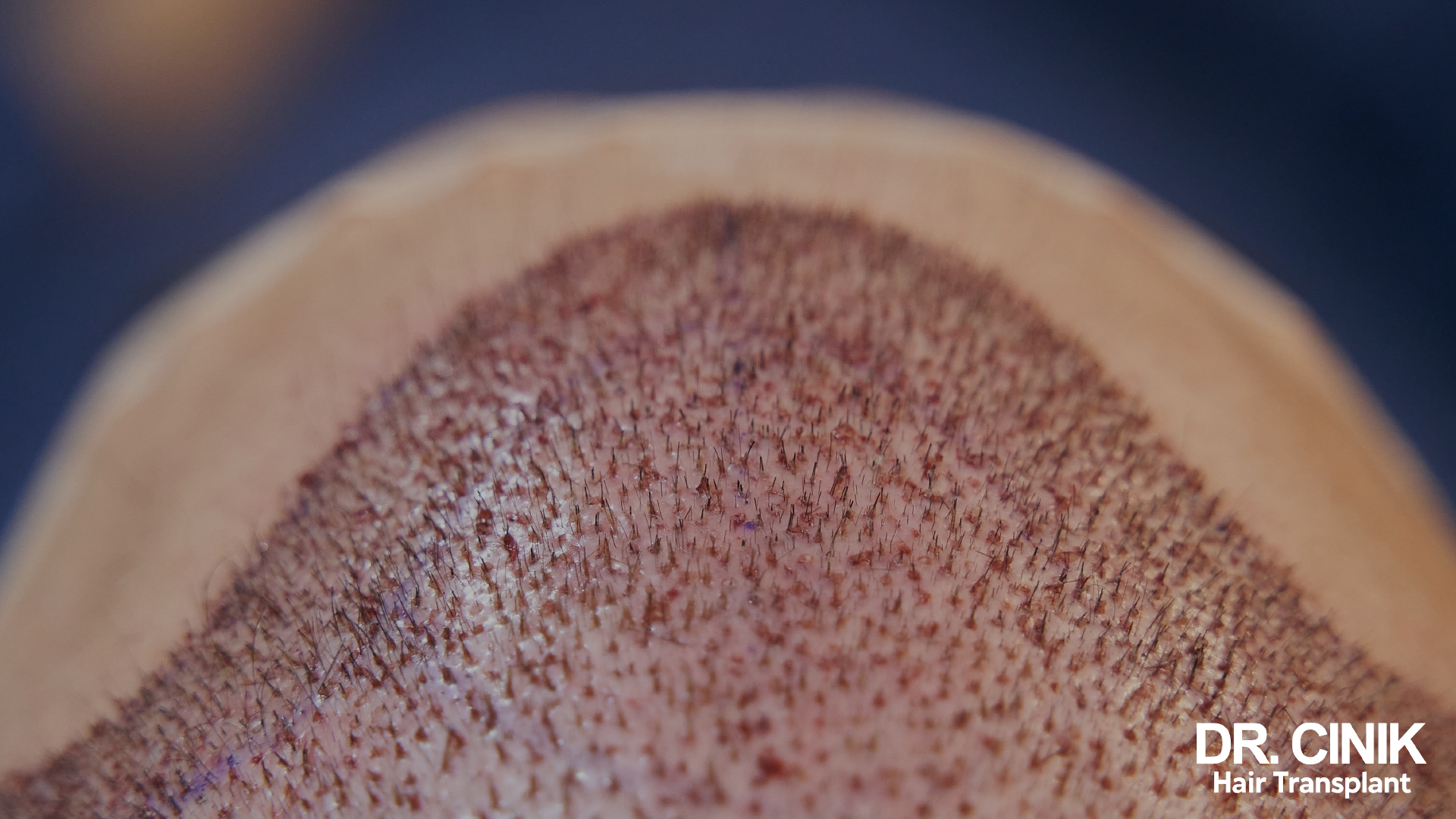
In addition, caffeine can also reduce the effectiveness of some post-transplant analgesic drugs, which could make post-operative pain management more difficult. It also has diuretic properties, which can lead to dehydration if fluid intake is not increased accordingly, and dehydration is not conducive to optimal healing.
For all these reasons, patients are advised to follow their surgeon’s advice regarding coffee consumption after a hair transplant. Most doctors suggest limiting or avoiding caffeine for the first few days following the procedure to minimise potential risks and promote a speedy recovery.
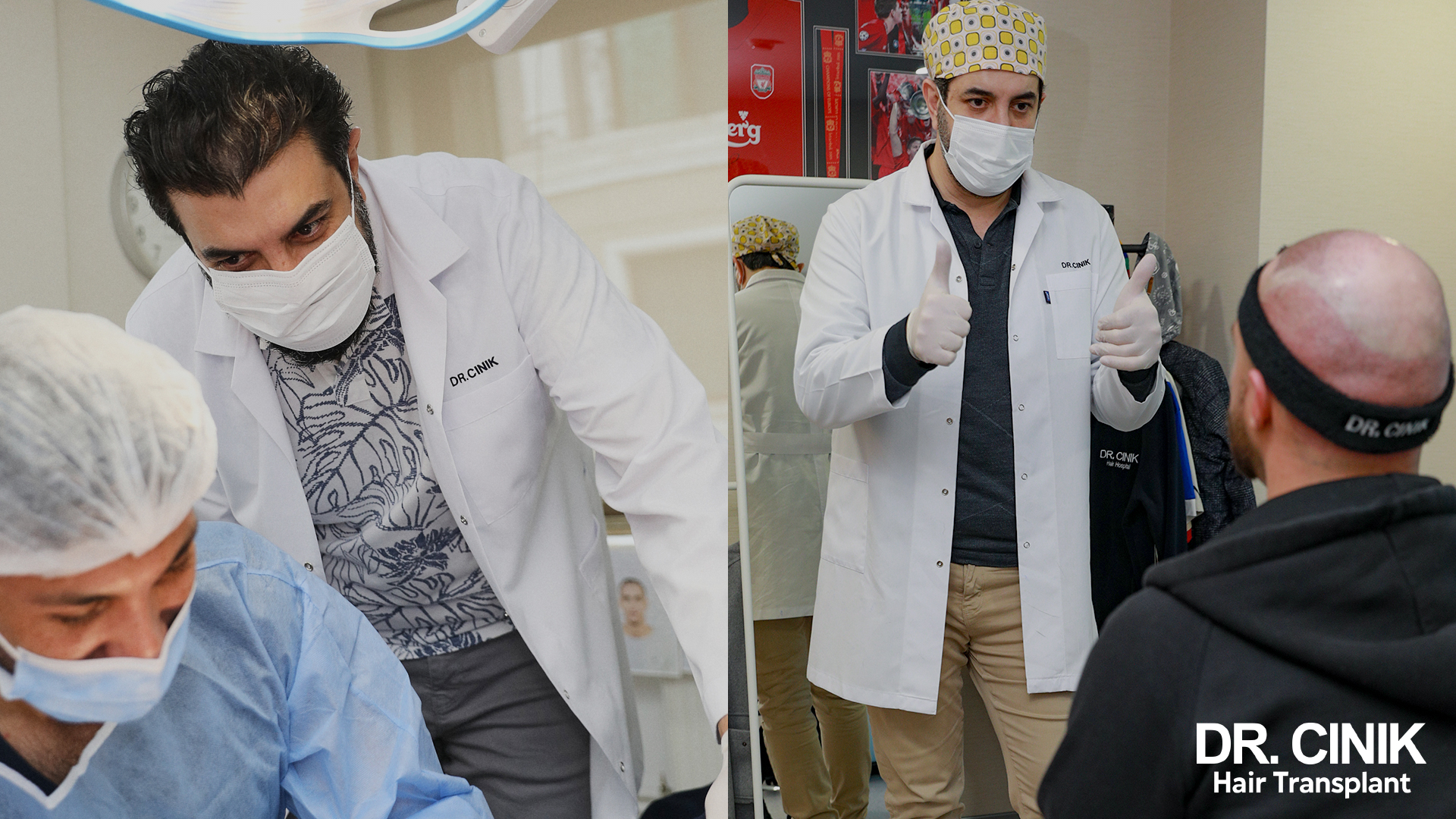
How soon after my hair transplant can I resume my usual coffee consumption?
Resuming your usual coffee intake after a hair transplant depends on your surgeon’s specific guidelines and how your body reacts to surgery. In general, it’s often advisable to avoid caffeine for the first few days after the transplant to minimise the risk of complications such as increased blood pressure or interference with healing.
In case of doubt or specific questions, it’s always best to consult your surgeon directly for personalised recommendations.
What other drinks should you avoid after a hair transplant?
After a hair transplant, it is recommended to pay attention to your consumption of certain drinks to promote optimal healing and reduce the risk of complications. Here are the drinks to avoid:
- Caffeinated drinks: Besides coffee, energy drinks like Red Bull and Monster, Coca-Cola-type sodas, and some chocolate drinks and mate.
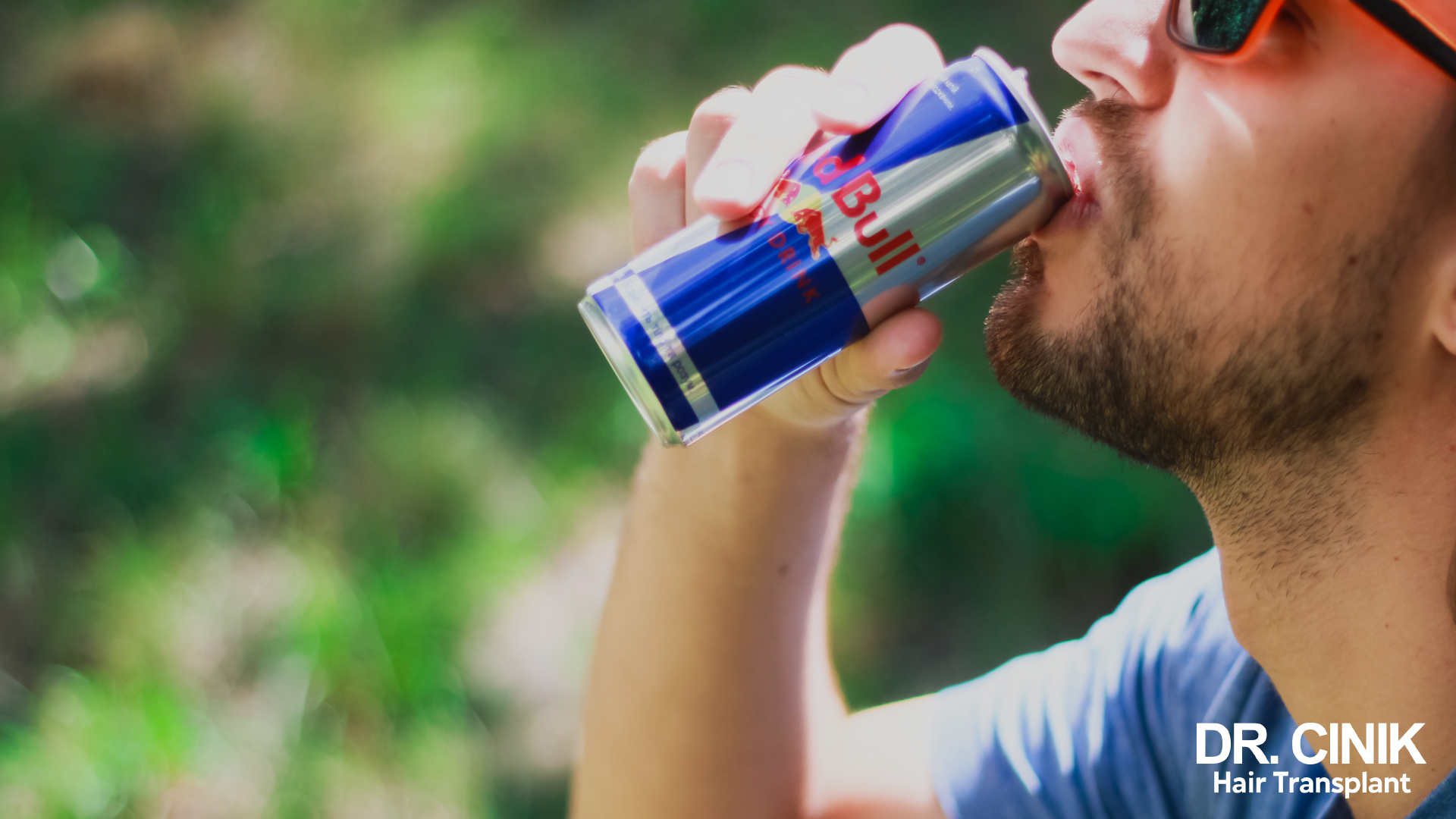
- Tea: Tea contains theine, which is chemically identical to caffeine. Like coffee, tea can increase blood pressure and affect wound healing.
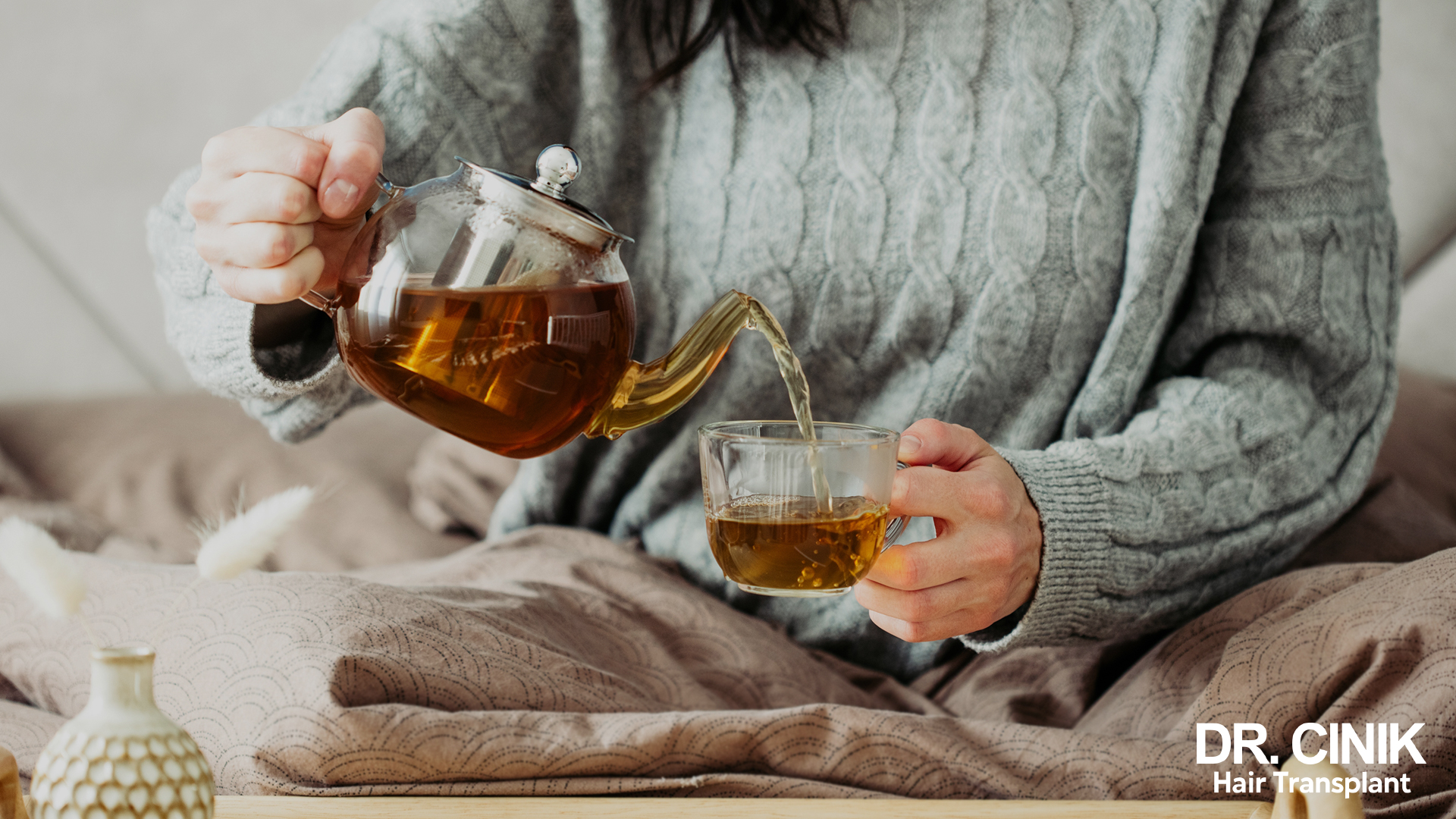
- Alcohol: Alcohol consumption can alter the healing process and the vascularisation of grafts. Alcohol also increases the risk of excessive sweating and bacterial infections, both of which are particularly detrimental in the post-transplant period.
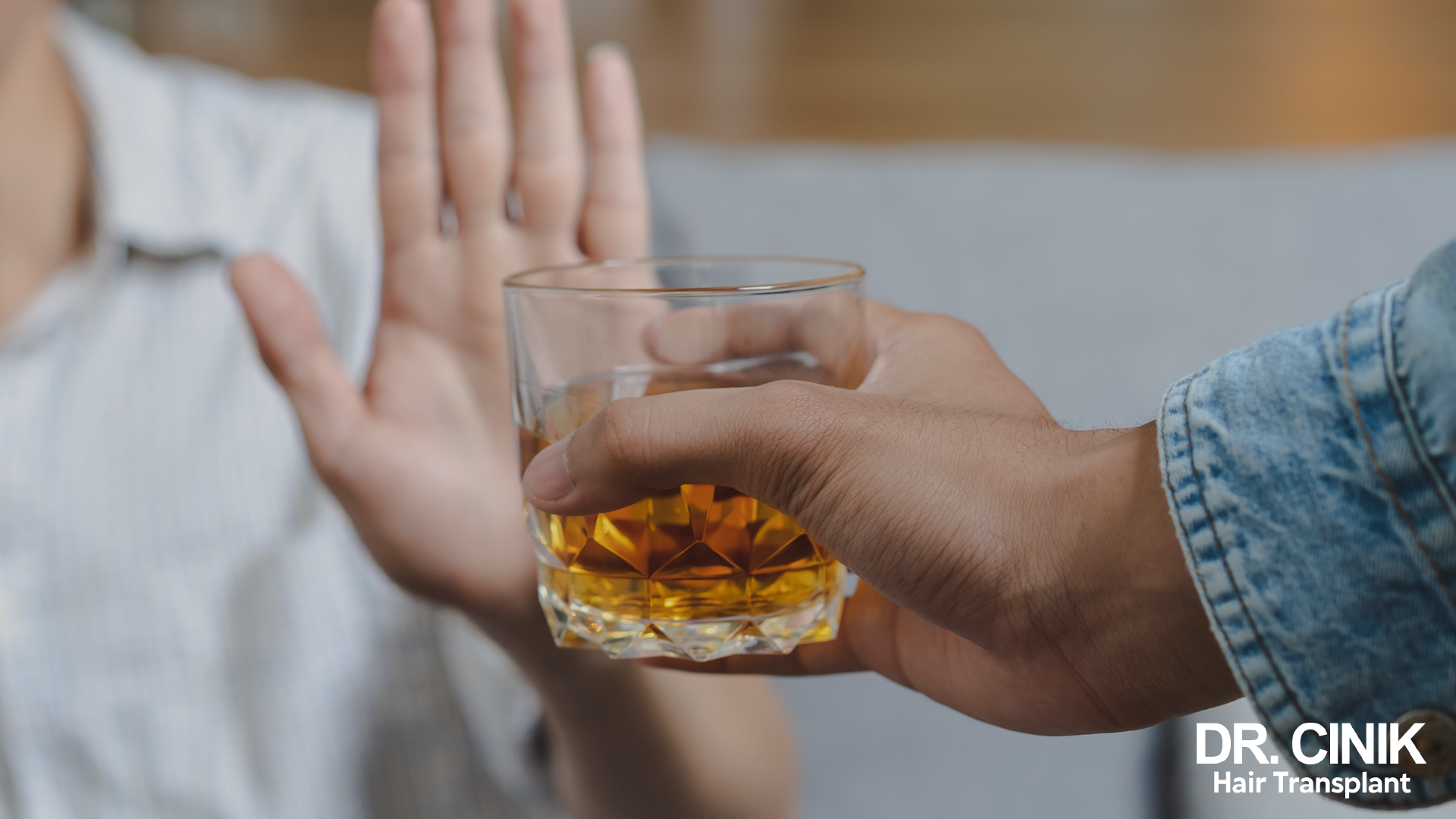
- Soda and sugary drinks: These drinks can increase blood pressure due to their high sugar content. Additionally, excessive sugar consumption can weaken the immune system, increasing the risk of infection and disrupting healing.
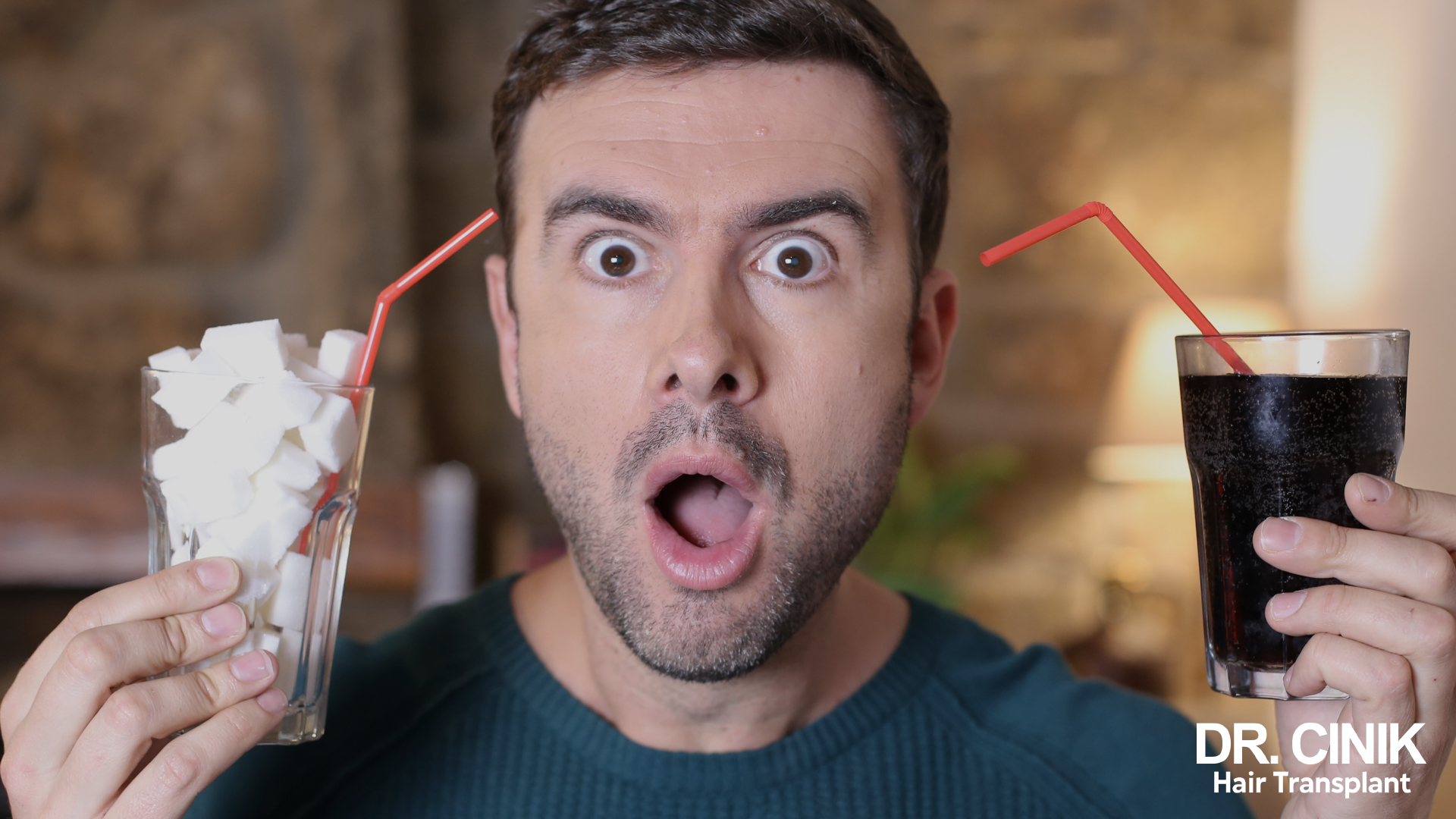
In the days following the transplant, favouring water, caffeine-free herbal teas and other non-stimulating and low-sugar drinks is preferable. Maintaining proper hydration is crucial for healing and overall health.
What alternatives to coffee after a hair transplant?
After a hair transplant, several tasty, non-stimulating alternatives are available if you want to replace traditional coffee. Mugicha, also known as barley coffee, is a popular option. Made from roasted barley, it offers a rich, earthy flavour without the caffeine. Sobacha, or buckwheat coffee, is another delicious alternative, offering a distinctive taste and nutritional benefits without the effects of caffeine. Spelt coffee is also an option, providing a mild flavour and health benefits.
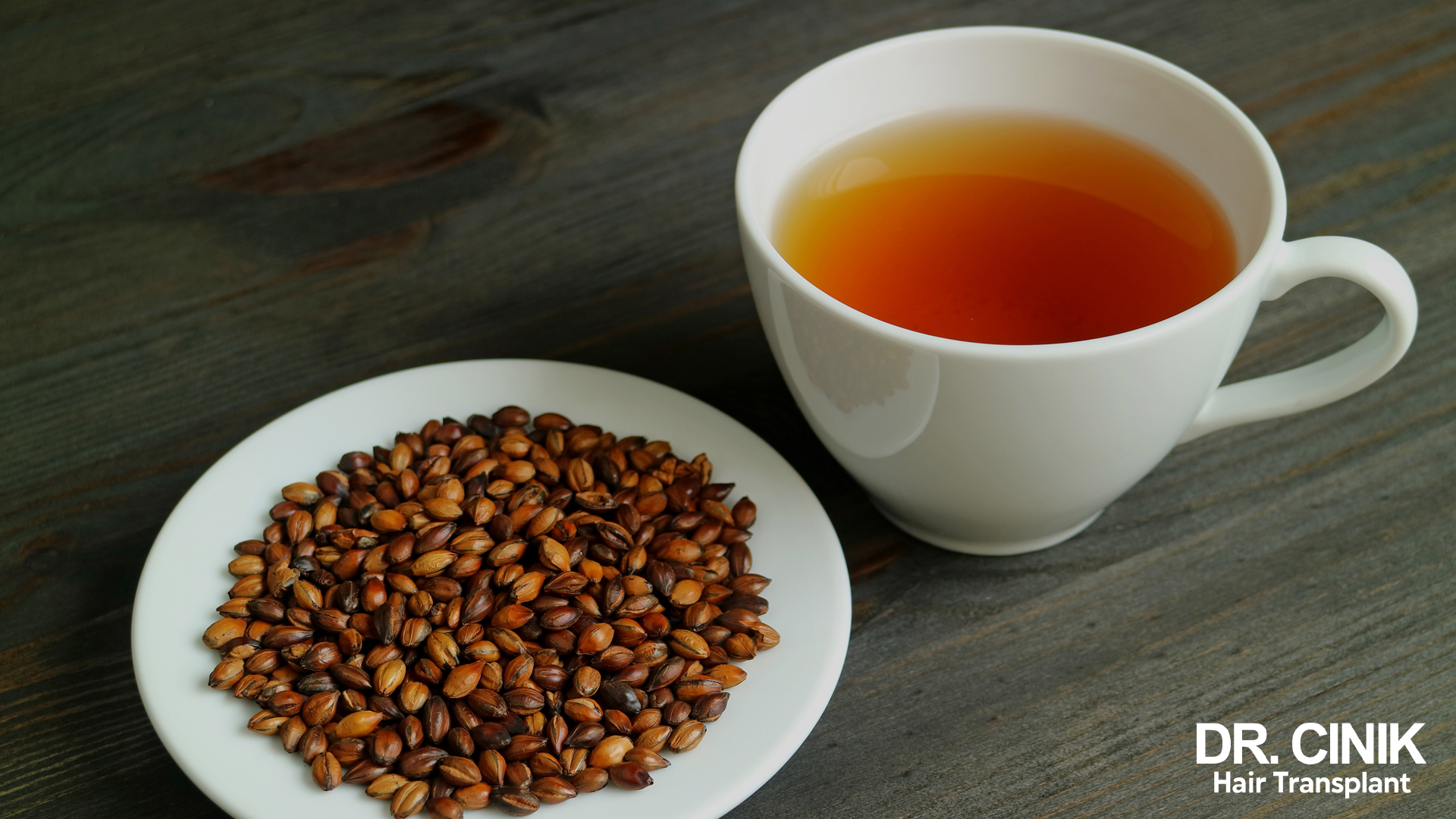
Coffee “chicory” is a famous alternative to coffee, known for its similar taste but without the caffeine. It can be particularly soothing for the digestive system. Decaffeinated coffee is another option, although it still contains small amounts of caffeine. For an utterly caffeine-free experience, rooibos, an infusion of South African origin, is ideal. It is appreciated for its mild taste and its antioxidant properties.
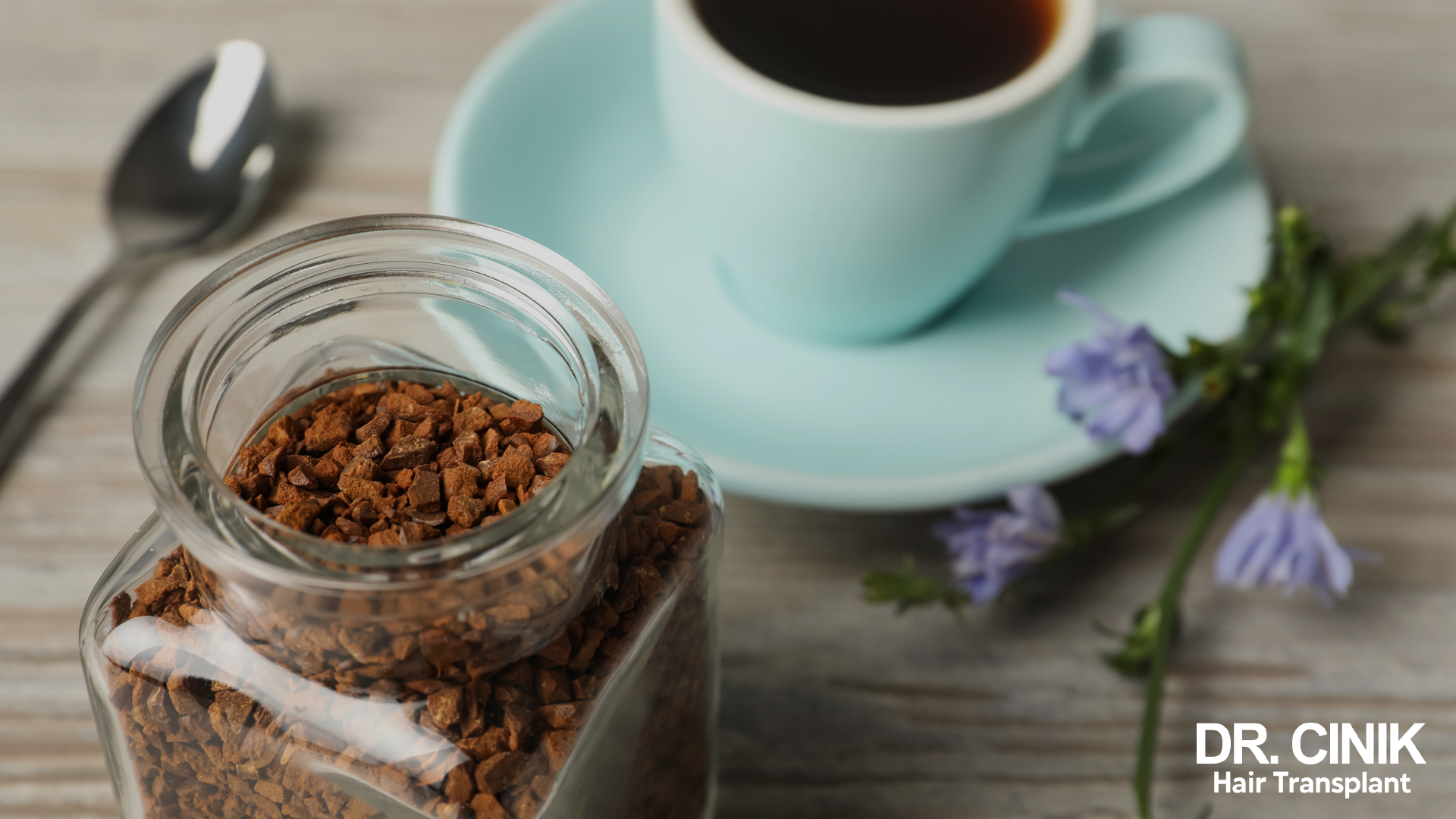
Finally, herbal teas and infusions, available in various flavours, are also great options, providing relaxation and hydration without the stimulating effects of caffeine.
Although coffee can be an integral part of many daily routines, avoiding it after hair transplantation is advisable to promote optimal healing temporarily. Caffeinated beverages, alcohol, and excessively sugary drinks can all have negative impacts on the healing process and graft health. Fortunately, many caffeine-free alternatives can satisfy the craving for a hot or refreshing drink without compromising recovery. Choosing healthy, hydrating beverages can contribute to a better post-operative result and longevity of transplanted hair.
 en
en



